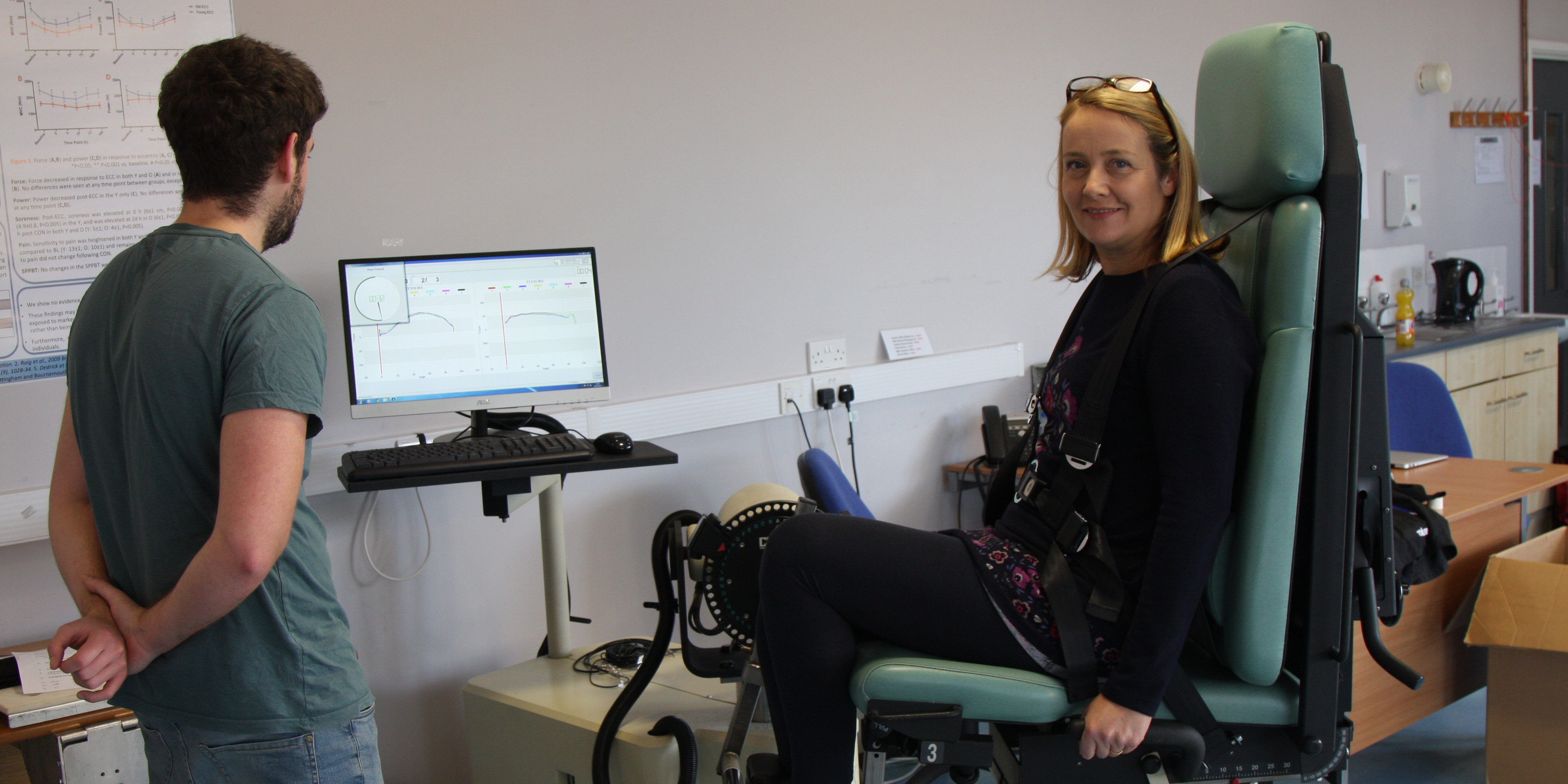
January 5, 2016, by Emma Rayner
Trust Me, I’m a Press Officer!
It can never be said that the work of a university press officer is not varied! Occasionally we’re asked to promote clinical trials that may be struggling to recruit but this time I thought I’d go the extra mile and volunteer for one myself as time was short. The BBC’s flagship TV health programme ‘Trust Me, I’m a Doctor’ had asked our researchers in musculoskeletal ageing over at the Royal Derby Hospital to set up a small study for their first programme of 2016 which airs tomorrow at 8pm on BBC2.
Dr Phil Atherton and Dr Beth Phillips’ team had just a few days to construct the trial and recruit at least 12 healthy middle-aged and older volunteers to test whether muscle mass and function can be improved by a simple home-based regime of resistance exercises. TV doctor Michael Mosley was curious to find out if age-related wasting of muscle mass called ‘sarcopenia’ could be halted or even reversed by a minimum but regular amount of exercise.
Having hung up my running shoes a couple of years ago after concerns about strain on my knees, I inevitably put on a bit of weight and felt my fitness level drop, even when merely climbing the two flights of stairs to our press office in the Pope building. Certainly my upper body strength has not been the same since I was hefting babies and toddlers around and finding time for regular gym sessions. I was an ideal candidate to take part in the trial.
It was not too onerous. Firstly, a trip to the exercise lab in the Division of Medical Sciences at the Royal Derby for some baseline measurements of weight, blood pressure and muscle power — filmed of course by the team from the BBC. Not so much fun was collecting our pee for 24 hours after we had drunk a creatine tracer drink which was being mooted as a potential way to measure muscle mass.
We were tasked with doing a set of 8 exercises every day in the course of our normal daily routines. These were all designed to activate muscles that we may not use much, particularly in sedentary jobs or in a restful retirement. If I am honest, I found it hard to make time to do the exercises throughout the day, especially at work, so found myself spending half an hour each evening making my family laugh by doing deadlifts with a broom, oblique twists with a full washing basket, toothbrushing squats and bicep curls with tins of baked beans. Climbing up and down stairs a dozen times was the hardest exercise but I was surprised at how quickly I began to feel fitter. The number of repetitions I could achieve without breaking a sweat quadrupled over the four week trial.
My personal results at the end of the study were not as impressive as many of the other volunteers so maybe I was fitter at the beginning than I thought, or I didn’t put as much effort into the training. My leg muscle thickness showed a 1% increase compared to a 2% increase across the group, my hand grip strength actually showed a 5% reduction in strength (don’t know what happened there!) but my best improvement was a 24% increase in power on the Nottingham Power Rig — a device that measures leg extension power which can be related to mobility.
I can honestly say that I did feel much stronger and fitter after the month-long trial regime but the Christmas break has put paid to the benefits as I have to admit to not keeping up with the exercises, watching too much telly and eating too much chocolate and cheese! At least we know now, thanks to our team at the Musculoskeletal Aging Research Centre and TV doctor Michael Mosley, that the unfortunate effects of a lazy festive season can be relatively painlessly rectified this New Year.
No comments yet, fill out a comment to be the first

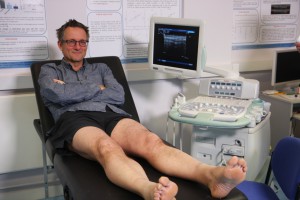
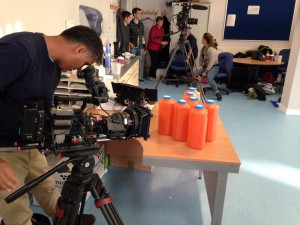
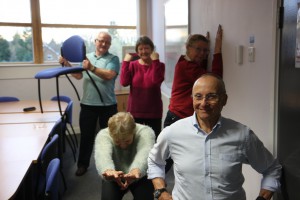
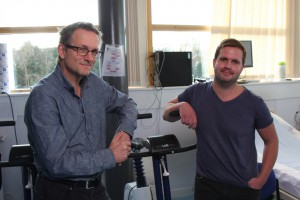
Leave a Reply